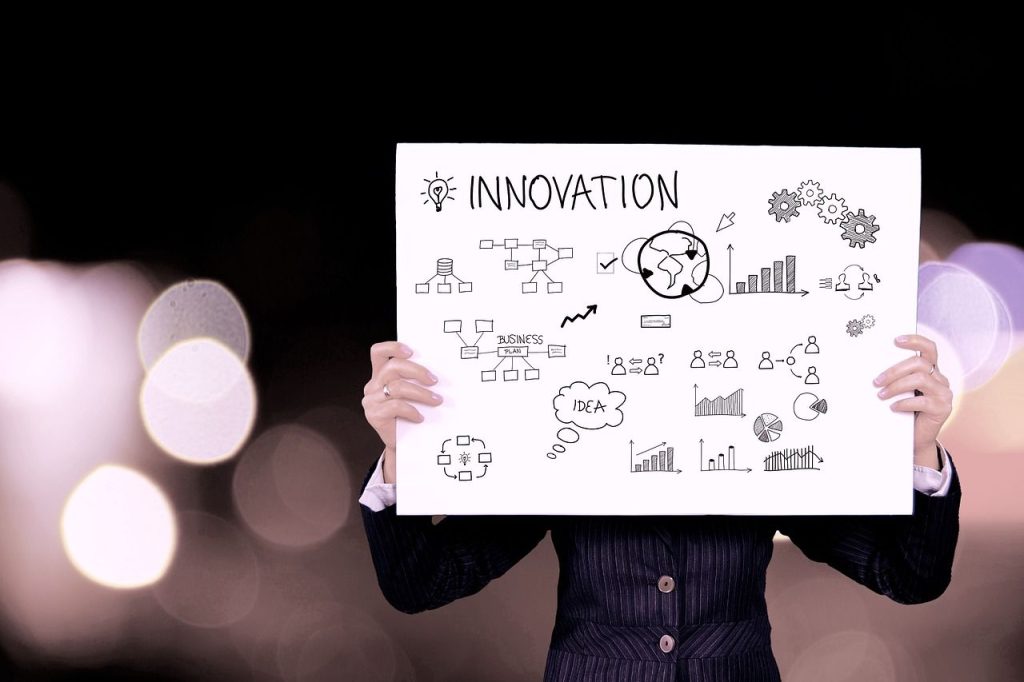As we look toward the future, 2025 promises to bring unprecedented innovations that will transform industries and how we interact with technology. From AI advancements to the growing integration of augmented reality (AR), businesses, tech professionals, and consumers alike need to stay informed to thrive. In this article, we delve into the top technology trends expected to dominate 2025, offering insights that can help businesses stay competitive and adapt to rapid changes.

The Rise of Artificial Intelligence (AI) and Automation
Artificial Intelligence continues to evolve at a breakneck pace, with AI becoming an indispensable part of industries ranging from healthcare to finance. In 2025, AI will not only automate tasks but also enhance decision-making capabilities by processing massive datasets with precision. The trend of AI-driven automation will extend beyond basic tasks to include complex problem-solving in fields like cybersecurity, marketing, and customer service, offering businesses more efficient and cost-effective solutions.
Why it matters: As AI becomes more integrated into business operations, companies will need to upskill their workforce to work alongside these technologies, ensuring they stay competitive and prepared for a more automated future.
Augmented and Virtual Reality (AR/VR): A New Era of Digital Interaction
Augmented and Virtual Reality technologies are poised to redefine how we experience digital environments. By 2025, both AR and VR will evolve beyond gaming and entertainment, finding their place in sectors like education, real estate, and retail. AR will be used for enhanced shopping experiences and virtual tours, while VR will revolutionize remote collaboration and training programs, offering fully immersive experiences.
Why it matters: As more businesses adopt AR and VR, they will provide customers with new ways to engage with products and services, offering them immersive and personalized experiences. Businesses that incorporate these technologies will lead in innovation.
Quantum Computing: The Next Frontier in Data Processing
Quantum computing is set to revolutionize industries that rely on large-scale data processing and complex simulations. By 2025, quantum systems will begin solving problems that classical computers cannot handle, especially in fields like cryptography, medicine, and material science. The ability to process complex computations faster than ever before will unlock new possibilities, from drug discovery to optimizing supply chains.
Why it matters: As quantum computing continues to develop, businesses in industries requiring advanced computation will need to prepare for its impact by exploring how this technology can be leveraged to their advantage.
Edge Computing: Bringing Data Processing Closer to the User
Edge computing is growing rapidly, offering faster data processing by bringing computation closer to the user, rather than relying solely on centralized cloud servers. This technology is particularly beneficial for the Internet of Things (IoT) devices, autonomous vehicles, and real-time analytics. By 2025, edge computing will allow businesses to achieve lower latency and reduce bandwidth costs, making it critical for industries that depend on real-time decision-making and data collection.
Why it matters: As IoT devices and data-driven applications increase, edge computing will enable businesses to scale their operations efficiently while improving performance and reducing costs.
5G Connectivity: Powering the Future of Communication
5G networks will continue to expand in 2025, providing faster, more reliable internet connections that will fuel innovations across industries. From enabling smart cities to supporting autonomous vehicles, 5G connectivity will improve communication speeds, reduce latency, and open up new possibilities for remote work, telemedicine, and virtual collaboration. It will also enable the growth of IoT, supporting millions of connected devices that require real-time data processing.
Why it matters: As 5G networks become more widespread, businesses will benefit from faster and more secure communication tools, enabling them to offer better services to customers and improve internal operations.
Blockchain Beyond Cryptocurrency: Transforming Business Operations
While blockchain is often associated with cryptocurrency, its potential goes far beyond digital currencies. In 2025, blockchain will be used to streamline business operations, particularly in supply chain management, voting systems, and intellectual property rights management. Its ability to provide secure, transparent, and tamper-proof records will make it invaluable for businesses looking to increase trust and efficiency in their operations.
Why it matters: Blockchain’s ability to enhance security and transparency will make it a game-changer for industries that require secure transactions, such as finance, healthcare, and logistics.
Conclusion: Preparing for the Technology Revolution of 2025
The technology landscape of 2025 will be defined by groundbreaking innovations like AI, quantum computing, and blockchain. As businesses prepare for these changes, it is essential to stay ahead of the curve by adopting emerging technologies that align with their goals and operations. By leveraging these trends, companies can unlock new opportunities, improve efficiencies, and gain a competitive edge in the evolving digital landscape.
Subscribe to our email newsletter to get the latest posts delivered right to your email.